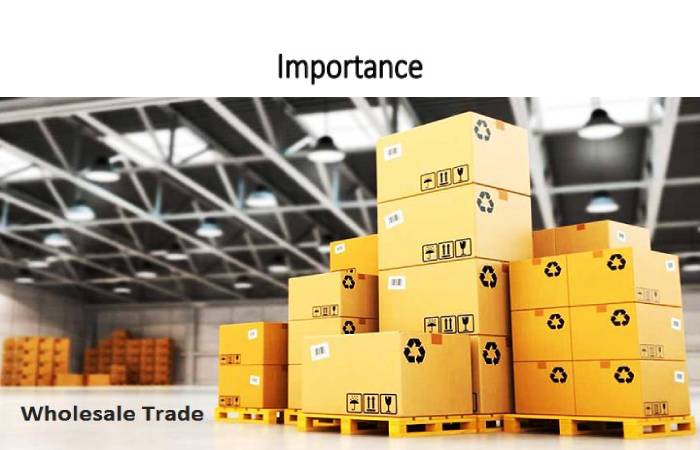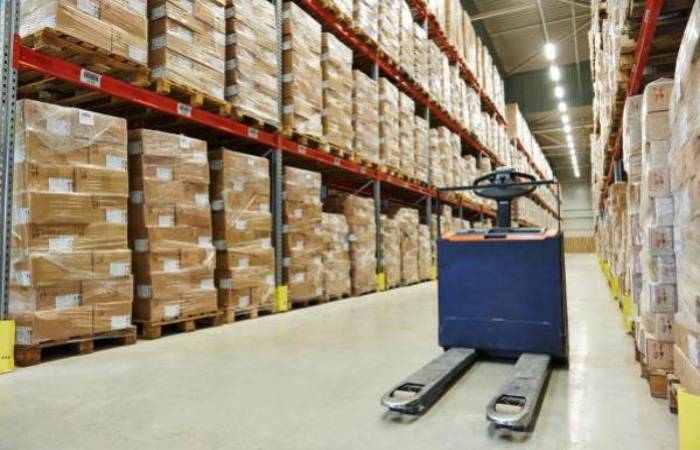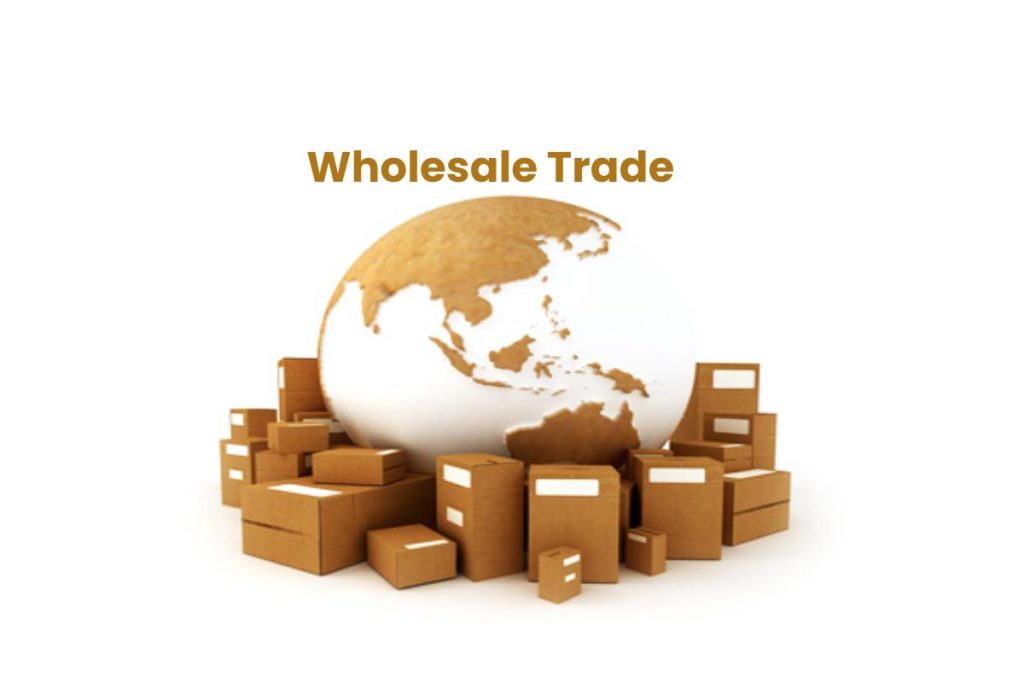Table of Contents
What is Wholesale Trade?
Wholesale trade, also known as wholesaling, is a commercial activity carried out within the distribution of goods and services.
A wholesaler company purchases products in large quantities directly from the manufacturer and then sold them in smaller proportions to retailers.
The main characteristic of wholesale trade is that the wholesaler does not come into contact with the final consumer public.
It is the point that distinguishes it from the retailer, the commercial agent who is in charge of the items’ retail sale.
Importance of Wholesale Trade

- The importance of wholesaling can find by looking at the role that wholesalers play in the distribution chain.
- These companies are responsible for liaising when moving and distributing finished products from manufacturers to the retail market or intermediate products between manufacturers.
- It means that the wholesaler, in its commercial exercise, manages to streamline the distribution process between companies, whether they are producers or marketers, so that they eventually reach the final consumer.
- Their specialization in the distribution of products makes them an essential part of the distribution chain, lowering costs in the transport and delivery of products.
- Consequently, it has a beneficial effect since it reduces the possible accumulation of merchandise for the manufacturer and the potential shortage of these items in the retailers’ stores.
- Likewise, wholesale trade increases profitability for manufacturers and retailers in terms of costs associated with particular goods’ distribution and storage.
Types of Wholesale Trade
In concrete terms, there is no classification into types of wholesalers that is standardized. It means that we can find different interpretations in the variety of these wholesale trade agents.
In this sense, we can establish categories such as:
1. Wholesale Agents by Sales Volume
Small Wholesaler
Although they have relatively low sales volumes, these are wholesalers who are in charge of distributing goods to retailers.
They usually find in sectors where access is difficult or that they do not have the financial capacity to assume high transport, storage, and distribution.
Big Wholesaler
These are companies that have a financial and operational structure large enough to handle huge volumes of merchandise.
It allows you to obtain special prices from the manufacturers, which generates succulent benefits for the marketing, storage, and transfer of the products.
2. Wholesale Trade Agents According to the Producer
Intermediary Wholesale Agents
It is a company that is generally in charge of storing and distributing the merchandise, but it does not acquire ownership over it in this process.
Generally, this type of wholesaler receives its earnings in the form of commissions.
Commercial Wholesalers
It is the most classic type of wholesaler. In this case, the company acquires large volumes of products that pass into its property and then sell.
Threats to Wholesale Trade

At present, many manufacturers to increase their sales levels offer different business strategies to minimize the number of intermediaries.
On the one hand, it has a beneficial effect on the final consumer in terms of the product’s final price as long as there is no excessively high increase in the storage and delivery of the purchased goods.
But while this represents an advantage for the end consumer, it removes wholesalers from the equation.
It is also observed with verticalization marketing strategies with other manufacturers or retailers, leaving out the wholesaler.
To this is added the market trends that tend to personalize items, which breaks with the business scheme of standardization of products typical of wholesaling.
These are all problems that wholesale companies face. However, at present, there are enough niches in various markets that require the participation of wholesalers in the distribution chains of numerous types of products.
Advantages and Disadvantages of Wholesale Trade
Wholesale trade, given its characteristics, offers a set of advantages and disadvantages to the same distribution chain. Among the main benefits we have:
They allow large quantities of merchandise to move in one go from manufacturer to retailer. They are thus preventing excess products from accumulating for the first and inventories running out for the second.
It reduces the costs of storage and distribution of products for the manufacturer.
It allows retailers to access volumes of merchandise that they can purchase or manage for final marketing.
They facilitate the access of products in remote places.
They help to mature the markets and strengthen the commercial relationships present in them.
Among the disadvantages of wholesale trade we have:
- Being an intermediary adds up to making the products more expensive. Therefore, returns for retailers fall, and it affects the final price.
- By concentrating goods, they can generate distortions in the market, such as shortages and shortages in certain areas.
- They do not facilitate the acquisition of personalized products.
The Function of Wholesale Trade
Wholesale trade is characterized by acquiring products from manufacturers and other wholesalers and distributing them to other wholesalers, distributors, retailers, and even manufacturers, but not to end consumers—the wholesale trade’s primary functions.
The performance of wholesalers can classify according to different criteria:
1. kind of Product
An organizes wholesale activity into 7 branches:
- Agriculture and food;
- Textile, clothing, and footwear;
- Drugstore, pharmacy, and home;
- Vehicles and accessories.
- Durable consumer goods.
- Interindustrial trade.
- Other wholesale.
- The pharmaceutical industry falls within the third section and defines the sector dedicated to manufacturing and preparing medicinal chemical products to prevent or treat diseases.
2. Property Relationships
- Wholesalers can be independent companies or maintain ownership relationships with other channel members (producers or distributors).
- The pharmaceutical distribution sector is highly fragmented compared to other countries, although it has undergone an important consolidation process through mergers and acquisitions in recent years. This situation is the result of the critical role that size and geographic coverage play.
- Pharmacists mostly own national pharmaceutical distribution. This type of ownership affects not only cooperatives but also distributors incorporated as public limited companies.
- However, except in exceptional situations, the shareholding of pharmaceutical distributors is highly fragmented, as there is a firm separation between control and ownership.
- In general, the pharmacist disconnect from the management, which, together with his minority participation, causes two crucial aspects. Participation with limited risk and reduced individual capacity to control against possible purchase options from third parties.
3. Product Location
- In general, and depending on the product’s location, wholesalers can locate at origin or the places of production, destination, or consumption areas.
- In the case of pharmaceutical distribution, and given the number of existing operators in the market distributed throughout the national territory, we would find a mixed figure, given the proximity to the producing laboratory and the retail group.
4. Type of Activity
- The different distributors in the pharmaceutical distribution market compete among themselves or have cooperation agreements materialized in purchasing centers.
- However, although all distributors operating in the market can supply both products financed by Social Security (SS) and other products, it may not be subject to official margins (advertising specialties, Para pharmacy, medical instruments).
- But, in this panorama, the direct sales carried out by different pharmaceutical laboratories begin to have a significant weight due to the buoyant demand from many pharmacies, shopping groups, or virtual chains. This importance is such that some laboratories already estimate their direct sales to pharmacy offices at 30%.
- Finally, the activity is carried out by integral logistics operators that allow the collection, distribution, and storage of pharmaceuticals, para pharmaceuticals. And surgical products to warehouses, hospitals, and pharmacy offices are becoming more and more relevant.
- Finally, it is worth highlighting the interest that many pharmacists have in testing the pharmaceutical industry’s direct purchase possibilities.
- Some through pharmacy groups (with the first objective of buying together) and others directly due to their high sales volume capacity.
5. Ownership or Possession of the Products
Most wholesalers are proprietary by the purchase of the products they distribute. However, specific figures may only have possession of the products, or even those only act on behalf of the seller:
Broker: It puts the producer and buyer in contact. It is a neutral intermediary whose main objective is to advise on commercial negotiations. Generally acts as a representative of the selling party, which is the one who usually contracts and pays for their services.
Commercial Agent or Representative: It acts as an intermediary between the manufacturer and the retailer. It usually has a stable and long-term relationship with the manufacturer, charging a commission for the sales made.
Commissioner: These are temporary collaborators who receive financial compensation for the services provided.
It should note the interest that many pharmacists have in testing the pharmaceutical industry’s direct purchase possibilities. Some through pharmacy groups (with the first objective of buying together) and others directly due to their high capacity in terms of sales volume.

